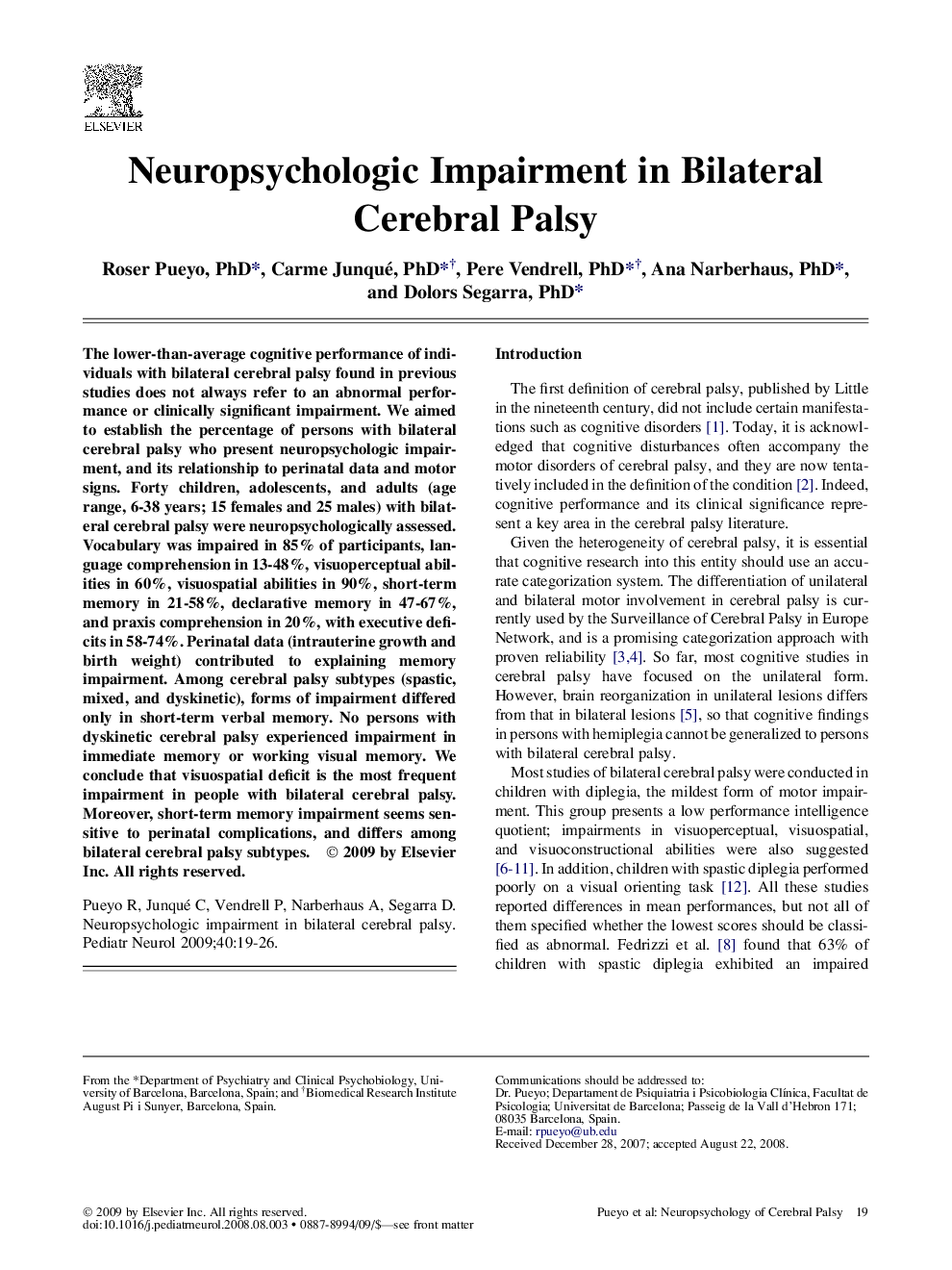| Article ID | Journal | Published Year | Pages | File Type |
|---|---|---|---|---|
| 3086513 | Pediatric Neurology | 2009 | 8 Pages |
The lower-than-average cognitive performance of individuals with bilateral cerebral palsy found in previous studies does not always refer to an abnormal performance or clinically significant impairment. We aimed to establish the percentage of persons with bilateral cerebral palsy who present neuropsychologic impairment, and its relationship to perinatal data and motor signs. Forty children, adolescents, and adults (age range, 6-38 years; 15 females and 25 males) with bilateral cerebral palsy were neuropsychologically assessed. Vocabulary was impaired in 85% of participants, language comprehension in 13-48%, visuoperceptual abilities in 60%, visuospatial abilities in 90%, short-term memory in 21-58%, declarative memory in 47-67%, and praxis comprehension in 20%, with executive deficits in 58-74%. Perinatal data (intrauterine growth and birth weight) contributed to explaining memory impairment. Among cerebral palsy subtypes (spastic, mixed, and dyskinetic), forms of impairment differed only in short-term verbal memory. No persons with dyskinetic cerebral palsy experienced impairment in immediate memory or working visual memory. We conclude that visuospatial deficit is the most frequent impairment in people with bilateral cerebral palsy. Moreover, short-term memory impairment seems sensitive to perinatal complications, and differs among bilateral cerebral palsy subtypes.
